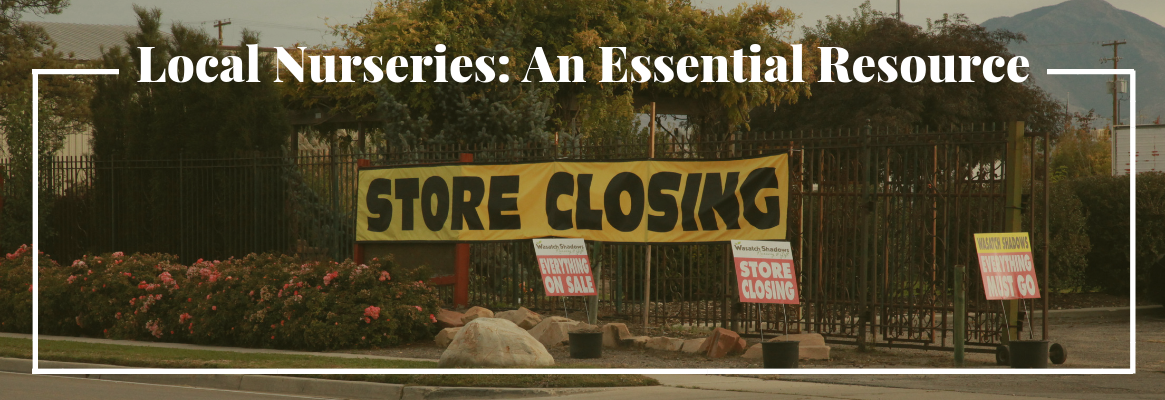
Local Nurseries Are An Essential Resource
-
The closing of Wasatch Shadows Nursery in Sandy at the end of this month is a great loss for local horticulture and the community in general. The land that Wasatch Shadows has occupied for more than 30 years is part of a new redevelopment zone and, now that the nursery owners are retiring, will be repurposed for a new use in the near future.
The closure of Wasatch Shadows is another loss in a string of local nursery closures or conversions that may herald a change in our ability to purchase plants from truly local sources if we don't change our buying habits. Wasatch Shadows Nursery is located in Sandy, which is one of the largest cities in Utah. Ten years ago, Sandy residents enjoyed the benefits of being able to source Utah-happy plants from five different local nurseries. As of this month, only Twin Pines Nursery remains—and they are primarily a wholesale nursery serving landscapers.
Developers and even city officials often see the land nurseries occupy as beneficial for other uses—once the nursery closes, it’s a great parcel of open land that’s easier and more cost-effective to redevelop than land with existing structures. Sandy’s remaining nursery, Twin Pines Nursery, tell us that they’re approached by developers wishing to purchase the land every month. The cost of undeveloped land is now high enough that it’s nearly impossible to open a new nursery in Salt Lake County unless you have a “land benefactor.”
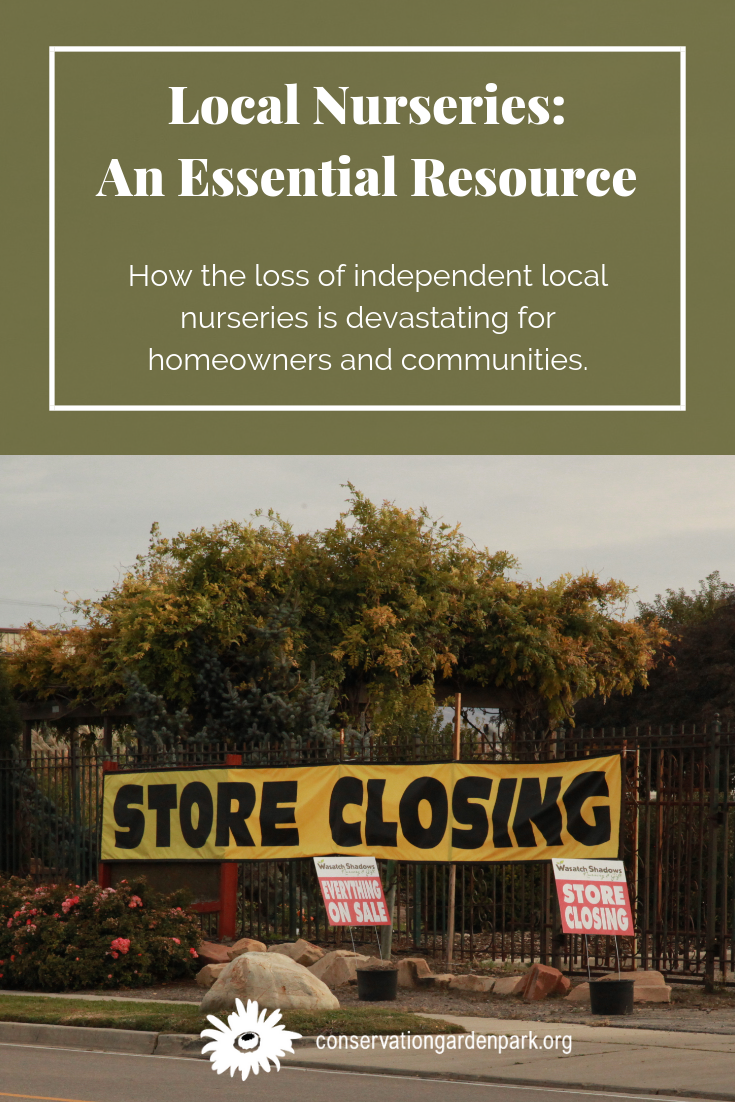
-
One such land benefactor recently saved a Localscapes® Partner Nursery--Deseret Nursery Perennial Farm--from having to close its doors. Located on Salt Lake City’s far west side, the nursery has provided high quality plants at a fair price for a decade. But the land the nursery occupies has just been acquired as part of the Mountain View Corridor right of way and the nursery is being forced to close.
Luckily, Deseret Nursery Perennial Farm was able to work with Woodscapes, a local landscape products company a few miles east of the nursery’s current location, to provide space on their land. As a result, they will reopen next spring in this new location. Farther north, Willard Bay Gardens nearly closed after the passing of the owner but was narrowly saved by an employee who purchased the nursery and it will also reopen next spring. -
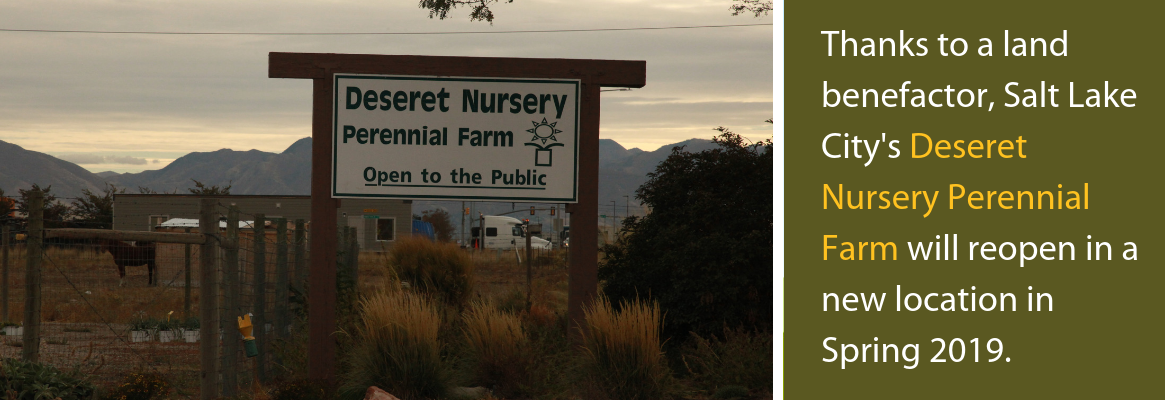
-
Our local nurseries would like to remain in business but it’s hard to hold out against the money offered by developers when the customer base is also eroding. Big box stores often use landscape plants as their “loss leaders.” That’s a sales technique where a store prices certain items at or below cost in hopes of getting customers in the door who will then purchase other items that are priced higher, thus offsetting the loss. As a result, local nurseries simply cannot compete with the box stores on price so they must focus on service and quality instead.
While getting the lowest price is important, this is bigger than that. Big box stores order in mass quantity from huge, out-of-state commercial growers. They provide largely the same plants to each of their stores, only loosely considering plant hardiness in the equation while failing entirely to consider local growing conditions. Big box stores stock the widest selection of the quickest-to-produce plants that may or may not work for your purposes or function in our climate.
-
Local nurseries stock plants and provide the expertise that locals need to landscape successfully in our tricky climate. They focus on the full range of plant options for Utah—not just the plants that are quickest and easiest to produce. Local nurseries generally invest more in their staff as well by offering better wages, training opportunities and employing people with horticulture-specific education or training.
Beyond selling plants, many nurseries provide additional services to help homeowners succeed. For a reasonable fee, they’ll send an expert to your home to help solve challenges specific to your yard, recommend the perfect plant for a specific location or design a landscape you’ll still be happy with many years from now. -
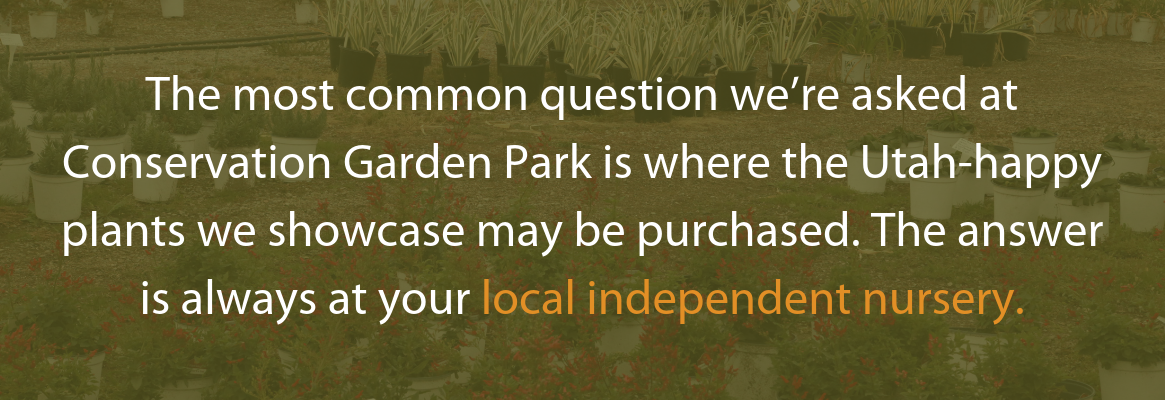
-
To serve locals even better, several nurseries have already partnered with Localscapes to provide comprehensive solutions for Utah homeowners, and more nurseries and garden centers are in the process of becoming partners.
The Localscapes partner nurseries below are providing additional value to the community in the following ways:
• Arbor Day Nursery in Riverton specializes in plants that can withstand the double dose of salt landscapes watered with secondary irrigation in southwest Salt Lake County receive.
• Westside Nursery may have a small land footprint but they pack hundreds of Utah-happy plants into their small site.
• Progressive Plants grows many of their own stock so they’re able to offer customers plants that are already acclimated to our climate and ready to grow in your yard.
• McCoard’s Garden Center in Provo also grows many of the plants they sell while also providing locally-produced plants to other local nurseries as well.
• Shade Home & Garden in Vineyard is a new nursery in an old location. The previous owners, Vineyard Gardens, opted to forego the huge dollars they could have received for development of the land upon retirement in order to enable a new garden center to operate and continue to serve the community. Shade is working hard to become a community gathering place that’s focused on horticulture and offers community education on the topic.
• Glover Nursery employees a number of experts who are formally educated in horticulture and design and offers opportunities for other employees to obtain their Utah-Certified Nursery Professional (UCMP) through the Utah Nursery and Landscape Association.
The most common question we’re asked at Conservation Garden Park is where the Utah-happy plants we showcase may be purchased. The answer is always at your local independent nursery.
-
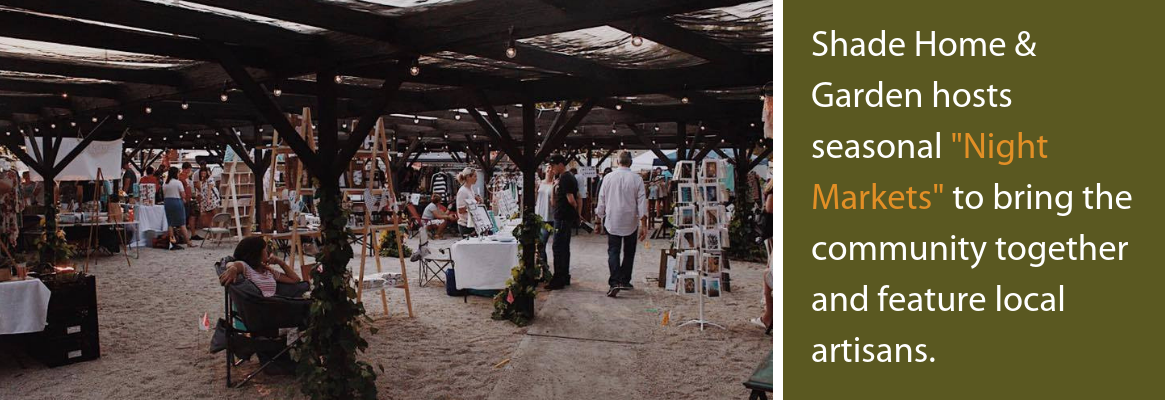
-
Here’s the bigger picture: If we lose our base of local nurseries, creating climate-appropriate landscapes will become nearly impossible. The variety of plants available will dramatically decline as well, box stores don’t have acres of land to dedicate to the nursery section. While home improvement stores and mail order plant sources have their purposes and provide value to the community in many ways, they’ll never be able to provide the climate-appropriate horticulture help that local nurseries do.
As consumers, it’s up to us to value the extra expertise and service and reward it with our business—even if we’ll pay a little more for plants as a result. Local nurseries do so much more than simply sell plants; they are a key part of creating beautiful, sustainable communities and are an essential component of Utah’s future.
-
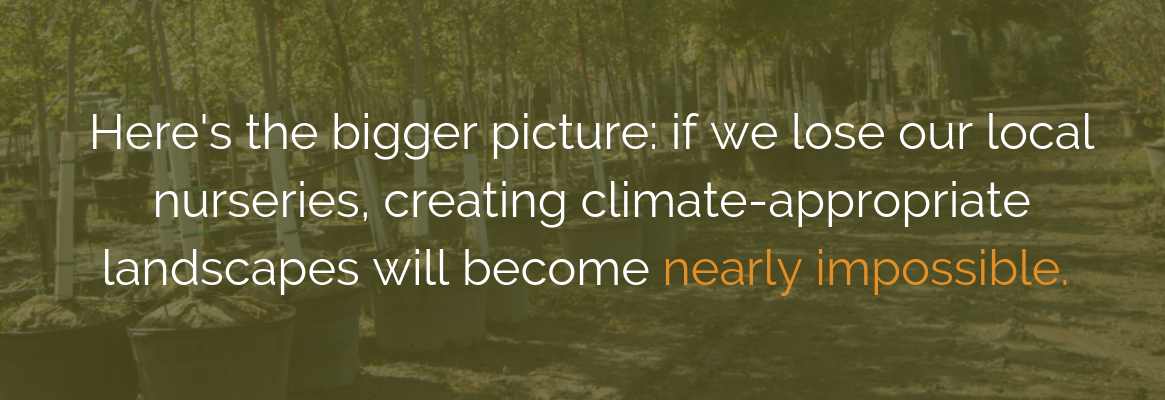
-


